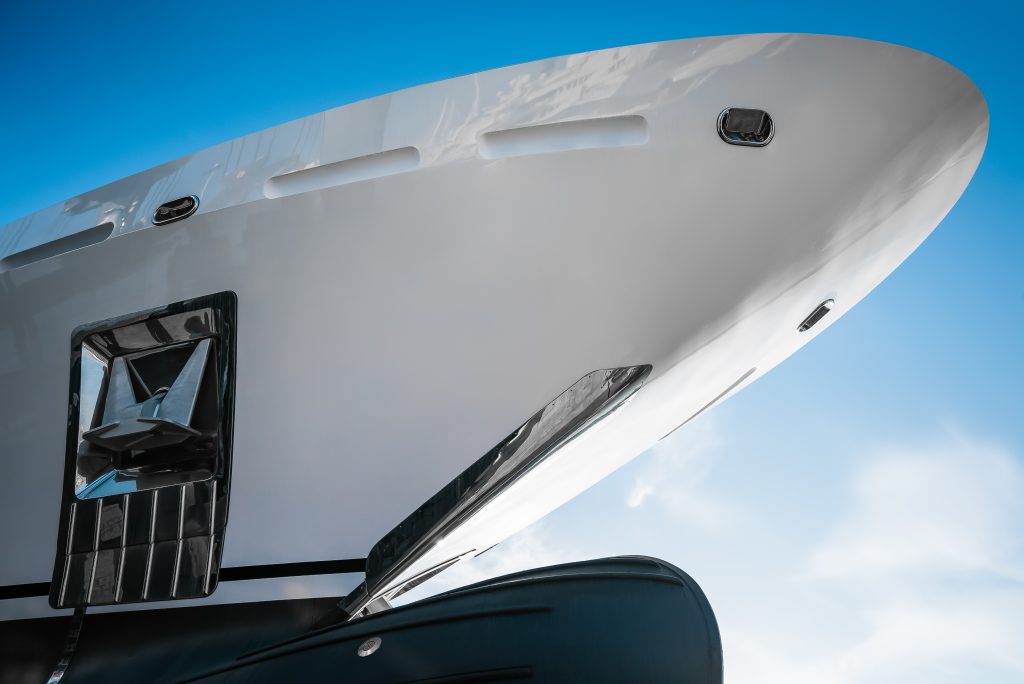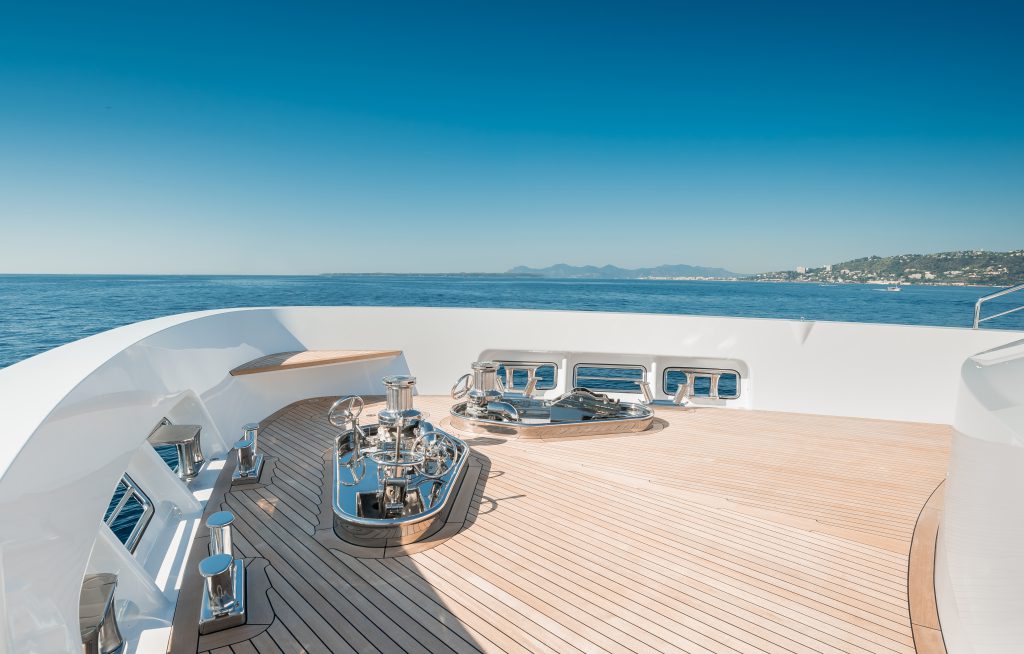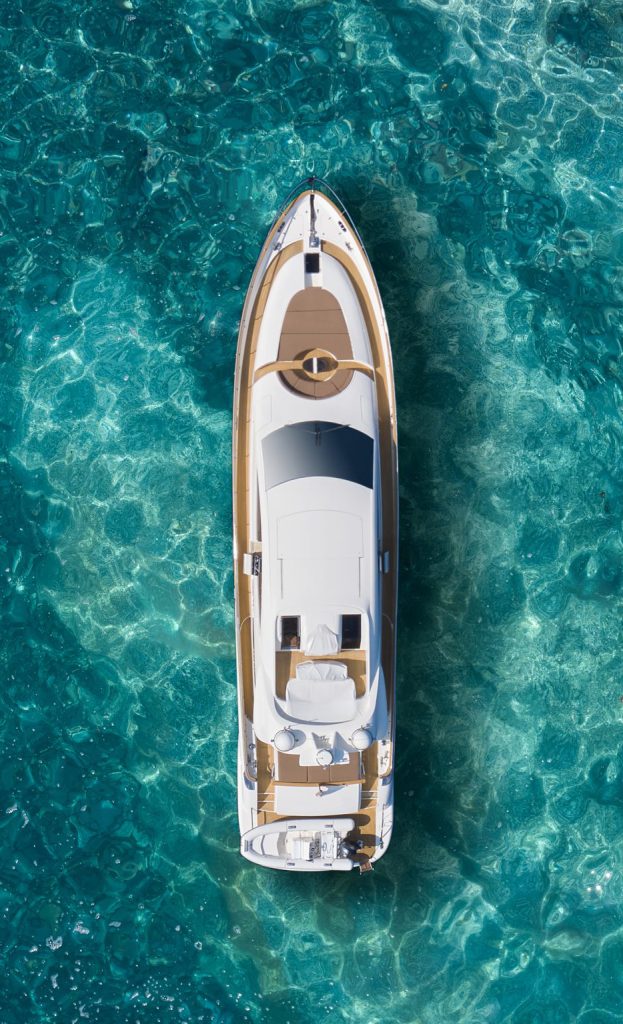
Earlier this year, commissioned by Deal Drechtsteden, Rotterdam Municipality, Port of Rotterdam and sector organisations NMT and Holland Yachting Group, Hein Velema, partner at Marstrat Consultancy B.V., set up the Roadmap Superyacht Delta.
The Roadmap is aimed at reinforcing the maritime cluster in the Rotterdam and Drechtsteden region with a three-year programme specifically aimed at the super yacht sector. Beautiful ships are built, refitted and maintained here.
The sector is extremely innovative, fully committed to sustainability and of great importance to the future of the Dutch maritime cluster and the maritime region of Rotterdam and Drechtsteden.
Three specific projects are featured in the Roadmap:
Two of the three projects mentioned have already been discussed by the Superyacht Builders Association and launched.

‘The issue tackled by One Maritime Data Standard (OMDS) certainly also affects the super yacht sector and I dare say maybe to an even greater extent in ordinary shipbuilding. If OMDS is implemented properly, it will prove to be a great solution for the super yacht sector. That's why I definitely recommended OMDS in the Roadmap Superyacht Delta. At present, the first two projects for reinforcement of the maritime cluster have already kicked off. I'm incredibly enthusiastic about OMDS and can see excellent possibilities in yacht building,' says Hein.

OMDS focuses mainly on the buyers, suppliers and processors active in the Dutch maritime manufacturing industry. According to Hein, there is greater diversity in yacht and super yacht building than in 'normal' shipbuilding due to the large size of customised ships, the luxurious interiors and all the entertainment systems. Many yacht owners always want the very latest in the field of navigation.
The installation side of 2BA, around for almost 20 years now, is relevant for super yacht building. A large percentage of this sector's suppliers is already active in the 2BA data pool and that makes 2BA particularly interesting.
According to Hein, competition in the yacht and super yacht building sectors is different to that in 'big shipbuilding' where the main focus is on a means of collaboration aimed at chain integration and digitalisation in order to keep the Dutch manufacturing industry ahead of its international competition.
‘That's not the same in yacht building. Italy, the Netherlands and Germany together serve 75% of the super yacht market. The competition is different; countries such as China currently form a lesser threat. There are no signals to suggest that this will change in the short term. As far as that's concerned, the super yacht market is pretty solid. And the Netherlands has a steady position in that market. The Netherlands and Germany are regarded as qualitatively the better yacht builders in this sector. There's a nice integration of traditional yacht building and the larger shipbuilding in the Netherlands,' Hein points out.
And if you look at the installation part of the super yacht industry, he believes that this is where internationalisation will soon come in: ‘Very few of all cranes, light switches etc. are made in the Netherlands. As far as that's concerned, it's the wholesalers who play a major role when it comes to digital offers in the Dutch market.'
Hein continues: ‘OMDS creates transparency and makes the purchasing process run more smoothly. The super yacht sector also suffers slightly from cold feet. The process becomes clearer for the purchasing side in particular. OMDS can have great significance for a wholesaler. If you're able to reduce all your handling expenses, you can take a more competitive position.'
According to Hein, the purchasers should also certainly implement OMDS in their systems, and there are significant benefits for them in doing so. ‘That is one big requirement. When parties such as Feadship, Damen and Oceanco join forces and say 'we really want this', you will have a very influential group in the Netherlands. Compliance with statutory requirements will be simpler since everything is stored in a single database. Well-organised suppliers will easily be able to benefit from it. I believe that OMDS offers huge advantages, not only for shipyards but for the whole chain.’
The 2BA Uniform Objects Library is a nice extra trigger, according to Hein. ‘Everyone gets interested when you mention it. That's the road we need to take. It's fully in line with the developments and digitalisation that everyone is engaged in. The biggest challenge is that it takes a bit of effort. You need commitment, capacity, PIM tooling and systematics to get the database well filled. And there's some trepidation about making the market more transparent.'
When it comes to OMDS, those things are the two biggest challenges for super yacht building and at the same time the biggest opportunities. ‘But if you look at the installation sector, it's a proven concept. All the problems we're seeing in the maritime sector have already been solved in the installation sector. That can only have a convincing effect. And OMDS profiles itself well; it's very present in the sector and I will certainly be raising the subject of OMDS at meetings in the super yacht world.'